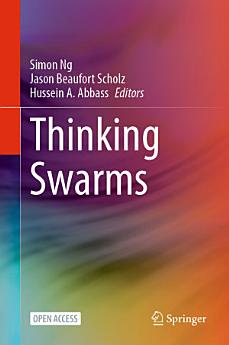Thinking Swarms
Acerca de este libro electrónico
Acerca del autor
Simon Ng is Chief Technology Officer at Trusted Autonomous Systems Defence Cooperative Research Centre (TAS-DCRC). Graduating from Monash University with a PhD in 1998, he completed a Post-Doctoral Fellowship at CSIRO before joining DSTG, where he developed techniques for military operations experimentation, and applied systems methods to surveillance and response, space operations and autonomous aerial systems. He was DSTG Group Leader for the Joint Systems Analysis and Aerial Autonomous Systems Groups, and Associate Director of the Defence Science Institute. He was Australia’s National Lead on The Technical Cooperation Program Technical Panel ‘UAS Integration into the Battlespace,’ and is a Graduate of the Australian Institute of Company Directors. His research interests include autonomy and artificial intelligence, robotics, systems science and systems engineering.
Jason B. Scholz is an Innovation Professor, with the Research and Innovation Capability department of the RMIT University, Melbourne, Australia. He was the 2020 recipient of the McNeil Prize for outstanding contributions to the Royal Australian Navy, and is a Graduate Member of the Australian Institute of Company Directors. He was CEO of TAS-DCRC in Australia from 2018 to 2022. He was Chief Scientist and Engineer for TAS-DCRC and holds 34 years of research, development and leadership experience with the Defence Science and Technology Group. His research interests include autonomous systems, artificial intelligence, human-machine command, control and communications, and research translation for impact.
Hussein A. Abbass is a Professor with the School of Systems and Computing, University of New South Wales, Canberra. He is a Fellow of IEEE, a Fellow of the Australian Computer Society, a Fellow of the UK Operational Research Society, a Fellow of the Australian Institute of Managers and Leaders, and a Graduate Member of the Australian Institute of Company Directors. He was the National President (2016-2019) for the Australian Society for Operations Research, the Vice-President for Technical Activities (2016-2019) for the IEEE Computational Intelligence Society, a Distinguished Lecturer (2022-2024) for the IEEE Computational Intelligence Society, and the Founding Editor-in-Chief of the IEEE Transactions on Artificial Intelligence (2020-2024). His current research focuses on trusted quantum-enabled human-AI-swarm teaming systems and distributed and trusted machine learning and machine education systems and algorithms.






